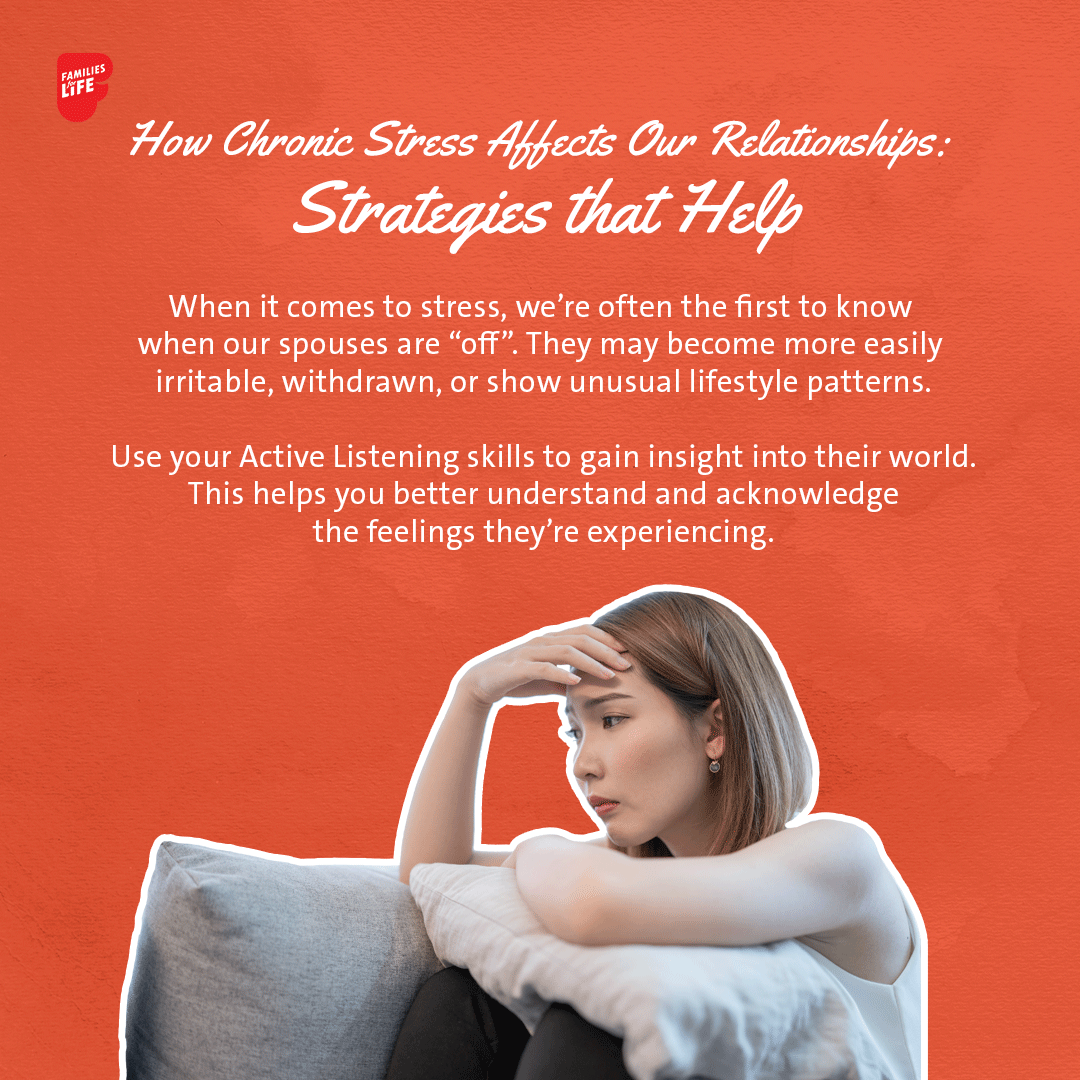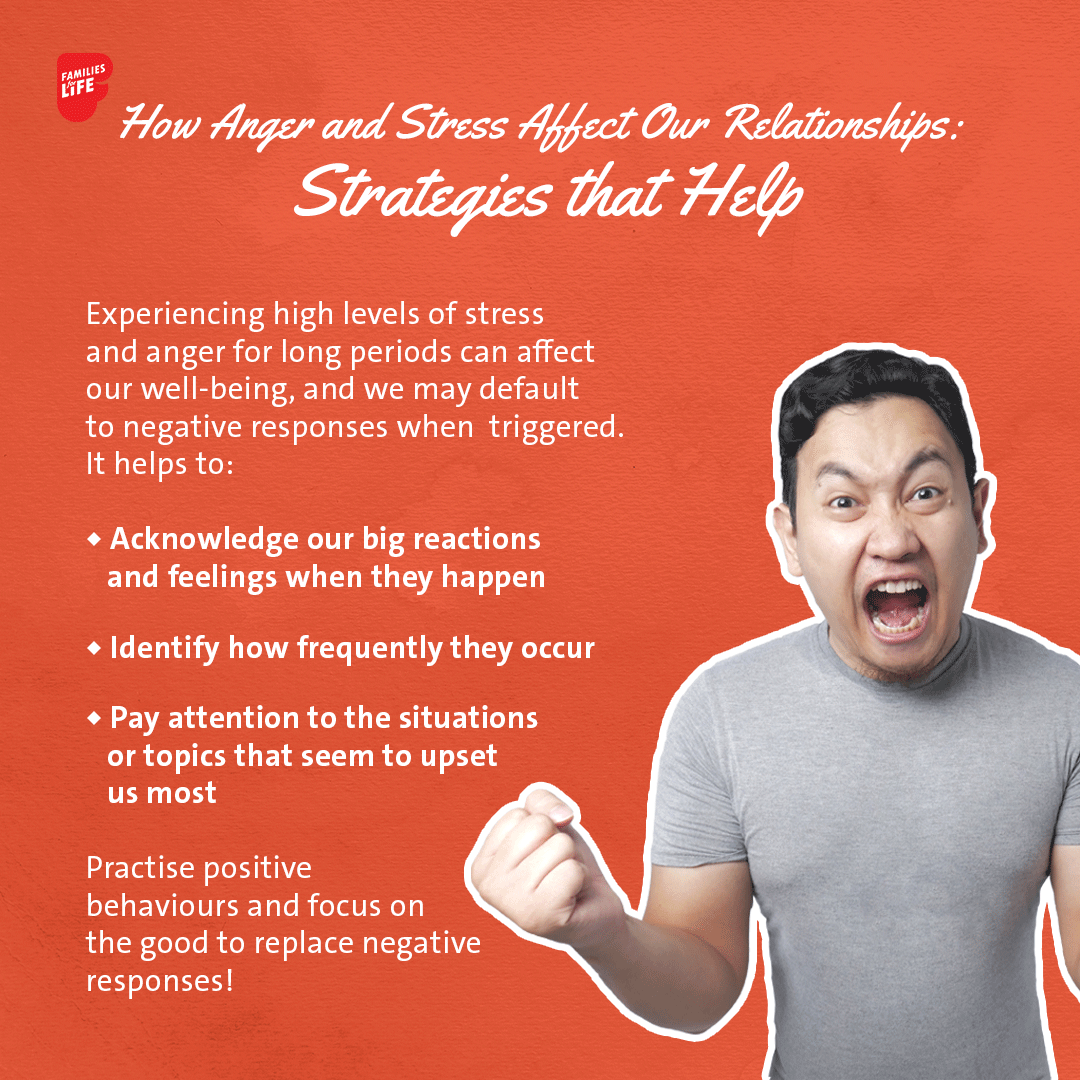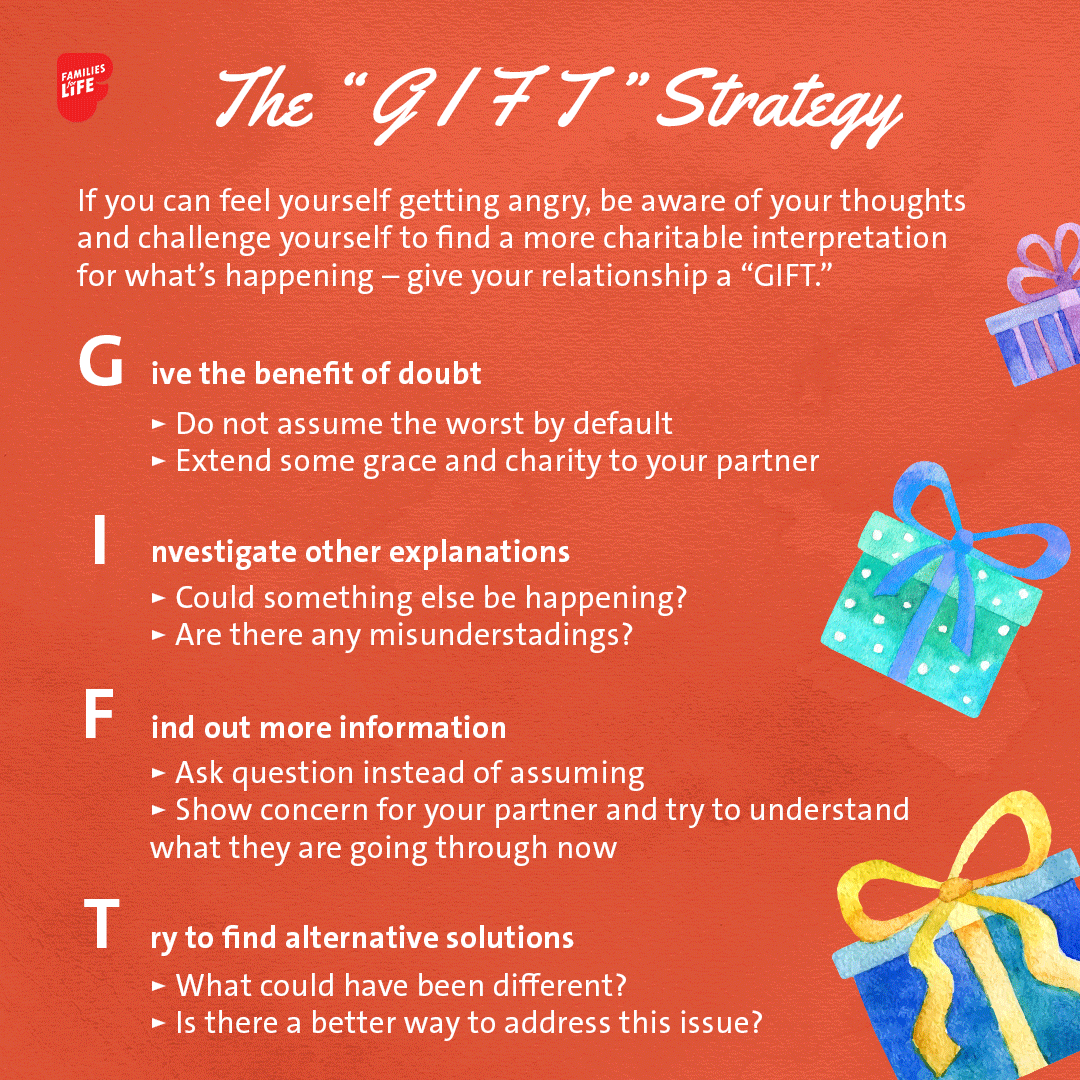How Chronic Stress Affects Our Relationships: Strategies that Help
Some research indicates that married people are healthier than their unmarried counterparts, and one possible reason is spouses have a built-in advocate and watchdog in one another. If your spouse has scooped some extra veggies on your plate, reminded you to schedule your annual check-up, or invited you to join them at the gym, these are some of the subtle (and not so subtle) health-promoting behaviours couples benefit from.

When it comes to stress, we’re often the first to know when our spouses are “off.” They may snap angrily at us over something minor, sleep or eat a lot more or less than usual, become more withdrawn, or lose interest in activities they enjoyed before. We all have bad days, stressful transitions, and difficult seasons to navigate, but when chronic stress bleeds into our personal life for an extended time, it can threaten our relationships.
One of the best things you can do when your partner seems stressed is take the time to ask them about what is going on and engage your listening skills. Active listening helps you gain insight into what is happening in their world, so you can better understand and acknowledge the feelings they’re experiencing.
How Anger and Stress Affect Our Relationships: Strategies that Help

Do you often find small irritations, like your spouse running a little late for dinner or a special event, causing you distress? When we experience high levels of stress and anger for too long, they can take a serious toll on our mental and physical health.
It is important to acknowledge our big reactions and feelings when they happen, identify how frequently they occur, and pay attention to the situations or topics that seem to upset us most. From there, we can strategise positive behaviours to replace some of the negative responses that we default to when we’re triggered.
If your partner coming home late from work is a frequent trigger and you find yourself quickly losing your patience and raising your voice, you need to acknowledge this sets you off. Then, instead of yelling the next time your spouse walks in late, decide you will greet them with a hug and express appreciation they are home instead. Focusing on the positive (they are finally home!) and not harbouring resentment over a few minutes of being late will make the evening a far more pleasant one.
The “GIFT” Strategy

When we’re stressed and easily triggered, little things can often set us off. If you can feel yourself getting angry or hot-tempered, be aware of your thoughts and use PREP’s new “GIFT” strategy to keep things in check. Instead of fueling the anger and letting it run away with you, try to:
G - Give the benefit of the doubt: Try not to assume the worst by default. Take a more charitable view. If you partner has not done their chores, try not to assume they are being lazy or trying to offload the housework to you.
I - Investigate other explanations: What else could be happening here? Is there any chance I’m reading this situation wrong or misunderstanding this? Perhaps your partner has not completed their chores because they are dealing with a stressful situation at work, or had a difficult conversation with a friend.
F - Find more information: Ask questions and explore further; there may be more happening than meets the eye. Instead of getting upset, ask your partner if they are OK and get a better sense of what is going on in their life right now that you might be unaware of.
T - Try to find alternative solutions to the problem: Is there a better way to address this issue? Should it be handled differently? If your partner does not have time to help with the laundry today, but will have more free time on the weekend, consider swapping chores, or offering to handle the laundry as a small sacrifice to help them during a challenging week.
We become far less creative and open-minded when we’re under extreme stress or in a heightened state of arousal. When we perceive something as a threat to us – to our independence, our time, our values, or our relationship – we often behave reactively. Slow down, pause the cascade of negative thoughts and feelings, and challenge yourself to find a more charitable interpretation for what’s happening – give your relationship a “GIFT.”
If you like what you read, check out other mini marriage PREP tips here!